#ChevroletVolt
NHTSA Opens Investigation Into the Chevy Volt
The Chevrolet Volt was a surprisingly decent car with an innovative powertrain and attractive styling, but its time came to an end a few years back. The NHTSA hasn’t forgotten about it, however, as the government agency recently opened an investigation into the car and its reported tendency to lose power while driving.
TTAC Rewind: Recapping the Life and Death of the Chevrolet Volt
Good evening. TTAC rewind is a bit late today due to your humble author being on the road again.
Anyway, I was talking to a few other journalists this week about the Chevrolet Volt and my contention that while it had its faults -- a bit overpriced, the lack of a middle seat in the rear -- the car was generally pretty good, and its extended-range electric powertrain setup could've been revolutionary for electrification, but GM simply didn't market it strongly enough.
Couple Learns the Hard Way How the Future of Motoring is Paved With Discontinued Batteries
A couple’s recent experience in Florida highlighted an issue that’s bound to become more prevalent as the motoring world leans into its EV future. After experiencing some issues they took their Chevrolet Volt to a dealer in Cape Coral, Florida. It turned out the Volt had a battery issue, and it could be fixed for $29,842. Welcome to the future.
Chevrolet Volt Postmortem: How Not to Market a Car With a Gasoline Engine
February 15th was a sad day, even for those who hate cars. On that day, General Motors’ Detroit-Hamtramck assembly plant produced the last Chevrolet Volt — a green car born at the dawn of a new era that didn’t take off exactly as envisioned.
In the truck-loving land of (relatively) cheap gasoline, electric vehicles are only just now eating up more than 1 percent of the market, thanks mainly to the Tesla Model 3 and what ownership of said vehicle says about your lifestyle and viewpoints. Plug-in hybrids are struggling, however, and the most famous of them all is now dead. A victim of falling sales, though your author would be curious to learn the model’s margin.
Despite offering the most practical combination of conventional gas-powered driving and electric ability, many claim the Volt’s failure was one of marketing, not engineering.
2019 Chevrolet Volt Review - An Elegy
Fully electric cars keep popping up, from startups and legacy automakers alike. They are likely the future. But I’m not ready for them, and likely neither are you.
Until nationwide infrastructure and car charging technologies allow for both a 300-mile range (typically the range of a kid’s bladder) and a 10-to-15 minute full recharge time, the internal combustion engine will always find a home in my driveway. I need the flexibility to drive across several states without plugging in.
That’s where a plug-in hybrid, like this 2019 Chevrolet Volt, makes all the difference. While it can run for over 50 miles without using gasoline, the gas engine charges the batteries, allowing for range similar to that of a traditional car. It’s the real-world way to go green.
Confirmed: Chevrolet's Bolt Loses Its Full Tax Credit In April, but Not the Doomed Volt
Good news for would-be Volt owners? Not really. Chevrolet’s soon-to-be-discontinued plug-in hybrid won’t live long enough to suffer the indignity of a halved federal EV tax credit. It’s dead in March, though remaining examples of the car everyone should want will no doubt linger on lots through the spring.
On Wednesday, General Motors announced, as expected, that it became the second automaker to pass the federal government’s 200,000-vehicle threshold, kicking off a three-month countdown to a chopped incentive.
Chevrolet Volt's Discontinuation Leaves Battery Plant Employees Out of a Job
The vehicle they provide batteries for has less than three months to live, and this week brought news to 50 workers at General Motors’ Brownstown Battery plant that their positions are even more short-lived. In a filing with the state of Michigan, GM said it will cut 37 hourly and 13 salaried workers at the Detroit-area facility, adding an extra dollop of job losses to the mass culling announced late last month.
If the idea of owning a plug-in hybrid with real electric range tickles your fancy, your time’s running out fast.
GM to Shed Five North American Plants, Numerous Products, Amid Restructuring Drive
Heavy-duty streamlining has reached the production level at General Motors. After last night’s bombshell (though not unexpected) report claiming Canada’s oldest auto plant would cease operations late next year, more news is trickling out about the automaker’s production future.
Add Ohio and Michigan to the list of locales expected to lose an assembly plant.
Pricier Chevrolet Bolt, Volt Loom as GM Nears Tax Credit Threshold
It looks like General Motors won’t enjoy its tax incentive advantage over Tesla for all that long. The maker of the Chevrolet Bolt EV and Volt plug-in hybrid (“extended-range EV,” in GM parlance) told Green Car Reports it will pass the 200,000-unit green vehicle threshold this quarter, meaning a halved federal tax credit for those vehicles starting in April of next year.
No longer will the base Bolt sticker for under $30,000 after factoring in the $7,500 credit.
As the Chevrolet Bolt's U.S. Sales Cool Off, GM Readies a Production Boost
As promised by General Motors CEO Mary Barra in March, GM plans to crank out additional Chevrolet Bolts at its Orion Assembly Plant in Michigan later this year. The need for extra output isn’t because of rising sales in the United States, however.
In GM’s second-quarter 2018 sales report, the Bolt’s U.S. tally fell to 3,483 vehicles, down from Q1’s 4,375 deliveries, as well as Q2 2017’s 4,500 units. Last year’s Q2 sales came when the Bolt hadn’t even reached all U.S. markets. No, GM needs more Bolts because other countries want them.
2019 Chevrolet Volt: The Overlooked 'Electric' Wants You to Plug In More Often
It’s not a pure EV, but in the early part of this decade, Chevrolet’s Volt offered one of the few mass-produced electric driving experiences on the market. Now in its second generation, GM’s “extended-range electric vehicle” — which packs a 1.5-liter gas generator — has seen its status dwindle as all-electric competitors rivals sprout like dandelions (among them, the confusingly named Chevy Bolt). Lesser plug-in hybrids abound.
Though the Volt still represents an easy-to-live-with compromise between gas-fueled convenience and emission-free commuting, GM knows it needs to do something to sweeten the pot. Extending the range beyond 53 miles seems pointless. But what if the car could charge almost 50 percent faster?
Piston Slap: Truly a Re-volting Notion?
Jason writes:
Dear Sajeev,
This isn’t so much a Piston Slap question, but rather a “what would Sajeev do (WWSD)?”
My father recently approached me and said that he and my mother are interested in getting a pre-owned electric to replace one of their aging cars. My father drives a 2009 Hyundai Sonata GLS (w/ popular pkg) with 65k on the odometer and my mother drives a 2008 Honda Civic EX Sedan with 85k. Both cars are close in age and miles, however, the Honda bests the Hyundai in resale value, hands down. Whatever they end up selling, my dad will keep to drive as an everyday car and my mom will get the electric. My dad is adamant about selling the Hyundai due to some shortcomings like the interior build quality (dashboard makes noises during hot climate) and the fuel tank has an odd evaporation issue where it forces the car not fill properly. However, I’m more for selling the Civic because the Sonata overall is a quieter and plush car for someone his age. In the past, he has complained the Civic is too low and I see him struggle to get in and out of my stock ILX. It’s a tough decision for us because both cars were purchased brand new and if you saw them today, you’d think they qualify as certified pre-owned vehicles.
The second question is the car they intend to purchase. My mom really likes the look and shape of the Nissan Leaf, but I introduced the Chevy Volt as an alternative and she approves. Both are completely different from one another but are a few thousands a part on the certified pre-owned market. My mother has a few years left until retirement and commutes (30 miles round-trip) for work, so both cars will suit her current and future lifestyle.
I know it might sound crazy to you (and readers) to sell any Asian car in such prime of their lives to get an electric car, but my parents are aging and at the end of the day, it’s whatever makes them happy that matters to me. So which makes more sense, selling the Sonata or Civic? Leaf or Volt? Or are we crazy and just keep the set up as is?
Let's Go All the Way: Chevrolet Bolt Increases Its Lead Over Faltering Volt
Never mind competing with EVs from other manufacturers. With each passing month, it becomes ever clearer that the all-electric Chevrolet Bolt competes directly with another General Motors stablemate: the Chevrolet Volt.
In October 2017, the Bolt — first sold last December and available nationwide since mid-summer — pushed into second place out of all plug-in vehicles sold in the United States, muscling out the Tesla Model X in the process. In doing so, it increased the sales gap between it and the range-extended Volt.
When buyers hit up a “dinosaur” legacy automaker for a green car, it seems they prefer going all the way — once-revolutionary gas generator be damned.
The Chevrolet Bolt Is Now Far More Popular Than the Chevrolet Volt
If plug-in hybrids were meant to function as a stop-gap between ICE-powered cars and fully electric cars, it may be time to consider Chevrolet gapless.
The Chevrolet Volt appeared in first-gen form in late 2010. By 2016, with the arrival of a second-generation edition, Volt sales climbed to record levels in the United States, albeit still not at the level GM originally hoped to see.
The Volt was and is a plug-in hybrid, an electric car with a range-extending gas-powered engine.
But with nationwide availability of the Chevrolet Bolt — change that V to a B for pure electricity — we’re now watching as Chevrolet Volt sales tumble. It turns out General Motors now has far more U.S. demand for its electric car than its ICE-accompanying electric car.
Nationwide Availability Means Chevrolet Bolt Has Outsold Chevrolet Volt Two Months Running
August 2017 marked the second consecutive month in which the Chevrolet Bolt, GM’s all-electric hatchback, generated more U.S. sales than the Chevrolet Volt, GM’s range-extended electric liftback.
Now available across America, the Chevrolet Bolt produced its best sales month to date in August.
The Chevrolet Volt, meanwhile, suffered its fifth consecutive month of decline.
Bolt > Volt?



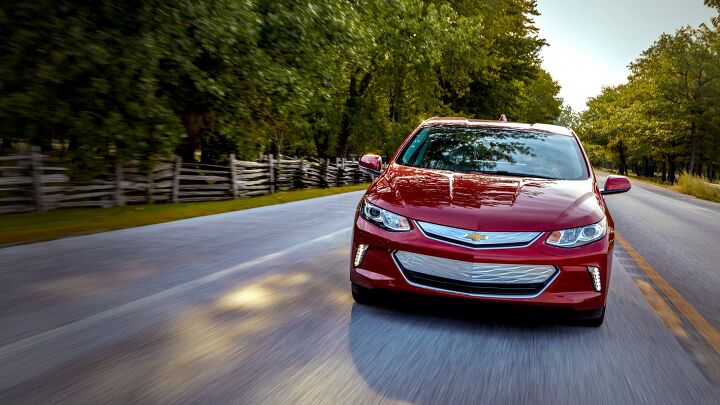
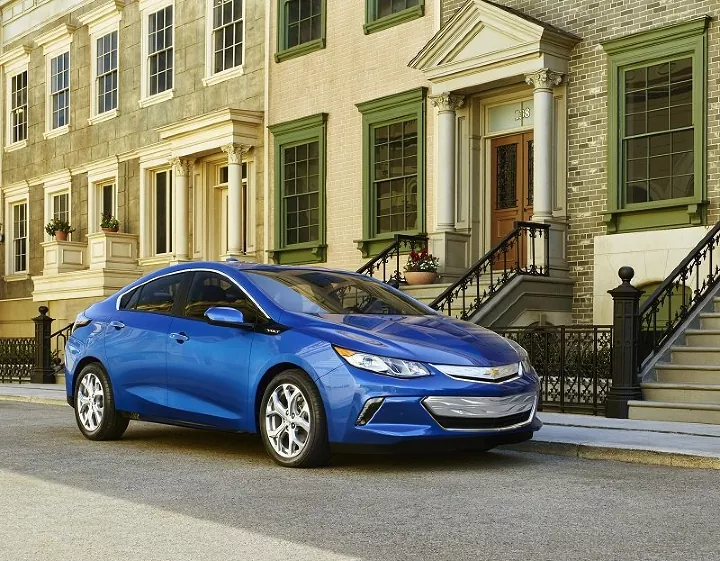

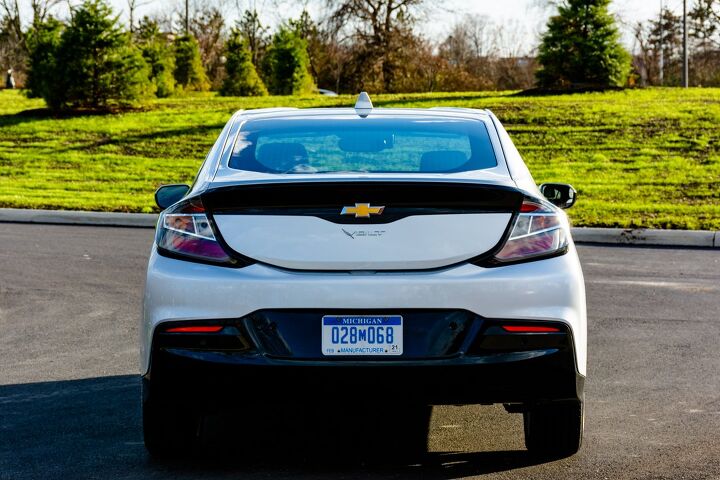
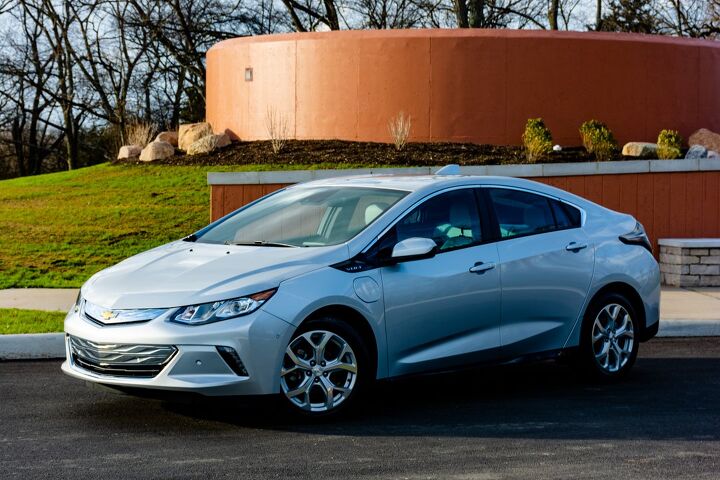
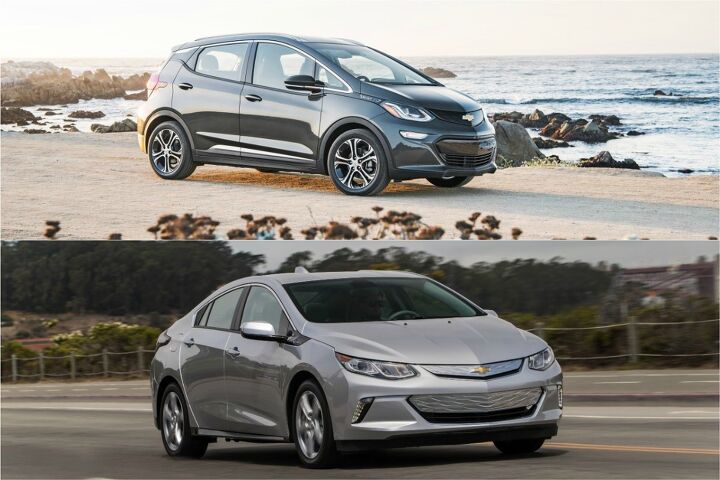
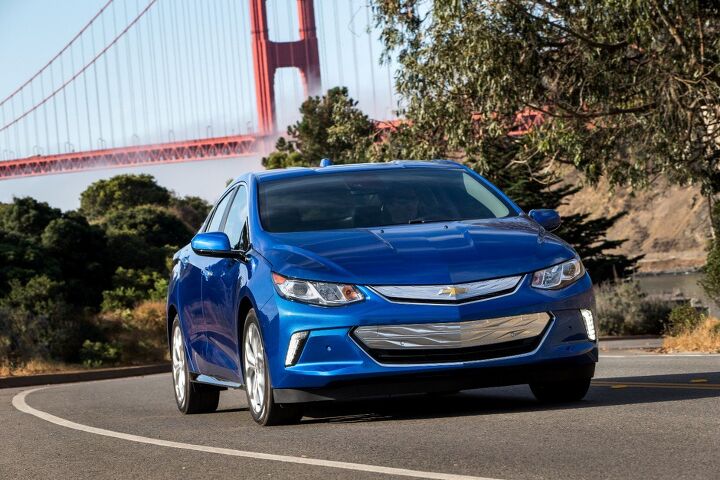



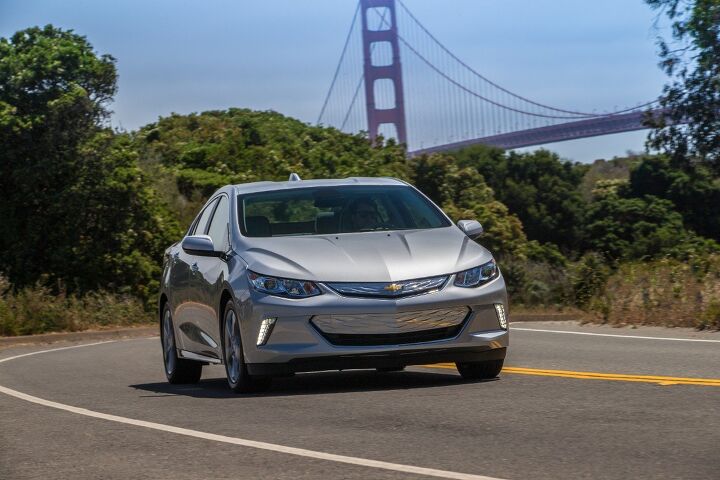

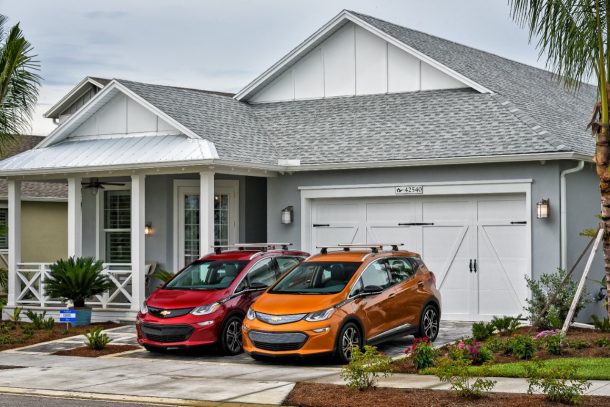
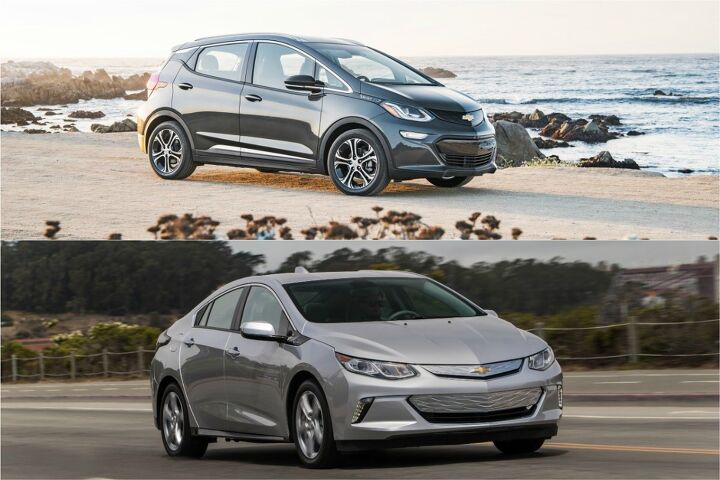
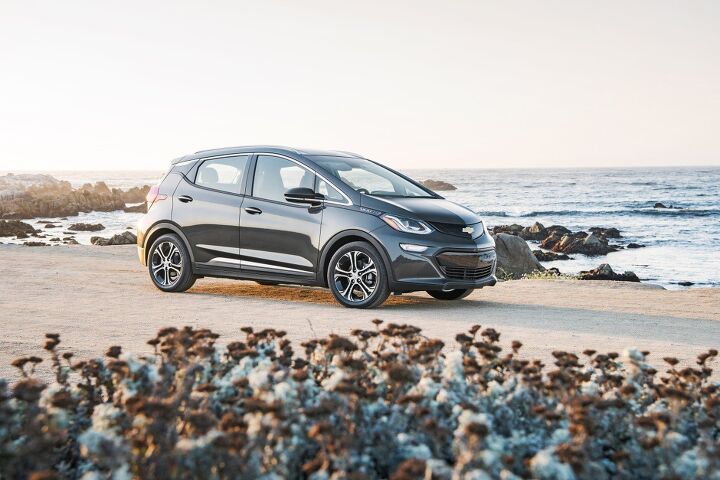












Recent Comments